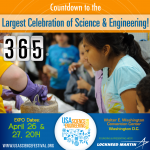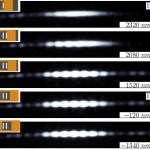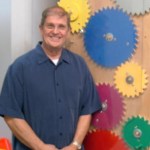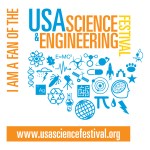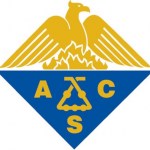outreach
Save the date: the USA Science & Engineering Festival Expo is just one year away! We are so excited to bring you the largest celebration of science & engineering for the 3rd time! Leading up to the Expo we will have affiliate events, the return of the Nifty Fifty (x3), contests, and school programs! The Festival week will kick off with the U.S. News STEM Solutions Conference, the launch of X-STEM Extreme STEM Symposium (Thursday, April 24) and Sneak Peek Friday (April 25)! The free and open to the public finale Expo will be the weekend of April 26-…
Yesterday's big post on why I think people should embrace scientific thinking in a more conscious way than they do already (because my claim is that most people already use scientific thinking, they're just not aware that they're doing it) is clearly a kind of explanation of the reason behind my next book, but what about the previous two? How does teaching people about modern physics through imaginary conversations with my dog serve the general goal of getting people to think more scientifically?
The following is a bit of a retcon-- after all, the proximate cause of my writing those books was…
As you may or may not know, I'm currently at work on a book called How to Think Like a Scientist. This raises the fairly obvious question in the post title, namely, why should people think like scientists? What's the point?
In a sense, this is (as Ethan Zuckerman pointed out at lunch the other day) the underlying question at the heart of the whole endeavor of science communication. I mean, I've written two books about modern physics for a general audience, and when I have time, I write this blog aimed at non-scientists. What's the point of doing all that, anyway? What is it I hope to achieve…
The Aspen Center for Physics does a number of public outreach and engagement activities.
A new and quite interesting effort underway is Radio Physics, in collaboration with KDNK community radio.
The project links (visiting) physicists with local AP physics classes, who do a 30 minute group interview, live, on the topic du jour.
When available in person, the interview is preceded by a mini-physics cafe, where the whole class meets with the victim at a local coffee shop and gets to quiz them on pretty much anything.
And, of course, the whole thing is not just broadcast live, but archived for…
In which we look again at the question of why, despite the image of physicists as arrogant bastards, biologists turn out to be much less collegial than physicists.
------------
While I was away from the blog, there was a spate of discussion of science outreach and demands on faculty time, my feelings about which are a little too complicated to boil down to a blog post in the time I have available. I did notice one thing in Jeanne Garb's guest blog post at Nature Networks:
Yet, given the current system, most scientists are choosing to keep a closed-notebook policy because they fear getting…
I recently read David Kirby's new book on science film consulting. This book is an absolute must-read for anyone even remotely or subconsciously interested in being a science consultant for the next Iron Man or Transformers, or smaller budget real-life dramas with real-life science in them. His book is both easy and interesting to read - and is filled with information. He explores the history of science-consulting, going all the way back to "Woman in the Moon" and of course the still canonical "2001: A Space Odyssey", and discusses a large number of recent examples. He does not glorify…
Each week we like to acknowledge those that truly make our Festival the largest celebration of science: our fans. Without the support of our fans, we would not be able to able to achieve our mission which is to re-invigorate the interest of our nation's youth in science, technology, engineering and math (STEM) by producing and presenting the most compelling, exciting, educational and entertaining science festival in the United States. Our fans travel from near and far to attend the Festival and along with our volunteers; they help us maintain the buzz of this celebration all year long.
This…
This week's "Featured Fan" is Felicia Reed! Felicia is a Festival Volunteer, she runs a great community outreach organization and is a proud mother to a future STEM leader! We thank Felicia for her Festival contributions and ongoing support!
Read all about our "Featured Fan" Felicia Reed below:
I am a HUGE fan of the USA Science and Engineering Festival! I work full time as a Quality Management Specialist. In my spare time, I operate Kids Getting Out (KGO) a community-based organization that sponsors activities, promotes process learning and performs community services. KGO also holds…
Two well-respected members of the science community-C&EN and the American Chemical Society (ACS) -have made commitments once again to participate as media partner and exhibitor/sponsor, respectively, in the USA Science & Engineering Festival. The Festival will be held for the second time on April 27-29 in Washington, D.C.
C&EN, the flagship weekly newsmagazine published by ACS, will help convey information about the festival nationally and internationally through both its print and online editions. With 163,000 primary member subscribers worldwide together with pass-along and…
The "Dance Your Ph.D." contest is on again for 2011. This unusual and highly interesting experiment in science outreach continues to be shepherded by John Bohannon, and continues to attract new sponsors -- this years sponsor is TEDx Brussels.
So what is this? Basically: you create an interpretive dance that "explains" your Ph.D. research and videotape it. Sounds easy, eh? No words, no powerpoint, just dancing. And you want the audience to walk away with a reasonable understanding of what you did or are currently doing your Ph.D. on. Send in a video and John will collect them all on his…
A few more comments on the scientific thinking thing, because it's generated a bunch of comments. As usual, some of them are good points, and some of them have completely misunderstood what I was trying to say. so let's take another crack at it.
While the post was worded somewhat strongly, I'm not really trying to stake out a position diametrically opposed to what Neil DeGrasse Tyson said. In fact, I suspect we agree more than we disagee. We certainly share the same broad goal, namely to see more people thinking more scientifically more often. The difference is really a question of emphasis.…
... because I love science and I love beer, obviously.
I had a great time moderating Science by The Pint last night! It is always awesome to be reminded how enthusiastic non-scientists often are about science. I find events like this incredibly refreshing when I have been stuck in a science rut or simply less enthusiastic about my work than usual.
I had participated in one of these events last year, when an upper level grad student was speaking. I wandered from table to table talking about how cool hydrothermal vents are, and why we think its important to study them. People asked…
Part of this past weekend's meeting of the Committee on Informing the Public was to evaluate 100+ proposals for "mini-grants" of up to $10,000 for new outreach activities. It wouldn't be appropriate to go into detail about any of the proposals or what we decided (the PI's of the proposals we decided to fund will be notified soon), but there was one issue that came up again and again that I think is appropriate for the blog, which is what should be considered as a successful effort, particularly in the online world.
A large number of the proposals we were considering had "new media" components…
Okay, "A Team" was a little to simple, and it was taken. Instead I would like to inform readers of the "CSRR" Team, or CSRRT. I will let the press release speak for itself:
NAME: Climate Science Rapid Response Team (CSRRT)
WEBSITE: www.climaterapidresponse.org
WHO & WHAT: The CSSRT is a match-making service between top scientists and members of the media and office holders and their staffs from various levels of government. Our group consists of dozens of leading scientists who wish to improve communication about climate change. The…
I finished Jennifer Ouellette's new book a few weeks ago, shortly after my trip to Alabama, but it's taken me a long time to get around to reviewing it due to a combination of too much work and being a Bad Person. There's finally a tiny break in the storm of work, though, so here's a slightly belated review.
The Calculus Diaries is not a book that will teach you how to do math. There aren't worked examples, detailed derivations, or homework problems in the main text. It might, however, teach you not to fear math, as it provides a witty and accessible explanation of the key concepts behind…
A quick check-in from Tuscaloosa, where we're getting ready to head out for the football tailgating. While I've got a minute, though, here are the slides from my public lecture, via SlideShare:
What Every Dog Should Know About Quantum Physics
View more presentations from Chad Orzel.
These are probably less comprehensible that some of my other talks, as I deliberately avoided putting much text on the slides, which I think works better for this kind of presentation. The down side, of course, is that it's not as obvious what some of the slides mean, if you don't know the intended flow of the…
Mike and David Dobbs both have great posts up discussing "whither rewards for scientists who communicate to the public?" This ended up being one of the themes of my recent SciencePub talk in Columbus--what are the incentives--and disincentives--to scientists for bringing their work to the public at large, rather than simply publishing in journals?
David notes that there has been much discussion about scientific papers being over-valued. As an untenured professor, certainly I realize just how much papers matter for my career, and how little blogging/outreach does (or, how much it may even…
There's a great post at NeuroDojo on the Heffernan business this weekend, and what the take-away ought to be:
Yeah, let's criticize that she didn't get past the first impression of science blogs. We should expect Heffernan to look before leaping - she writes for the Times, after all, which still has a certain reputation as a paper of record and quality. But let's not pretend that her impression ain't shared by anyone else.
For instance, she took heat for recommending a climate denialist blog. But that's not the first time that blog got recommended by people who ought to know better. That…
Earlier this week, there was some interesting discussion of science communication in the UK branch of the science blogosphere. I found it via Alun Salt's "Moving beyond the 'One-dinosaur-fits-all' model of science communication" which is too good a phrase not to quote, and he spun off two posts from Alice Bell, at the Guardian blog and her own blog, and the proximate cause of all this is a dopey remark by a UK government official that has come in for some justifiable mockery.
Bell and Salt both focus on the narrowness of the "dinosaurs and space" approach-- a reasonably representative quote…
Over at the Cocktail Party, Diandra Leslie-Pelecky has a post about the image of scientists that spins off this Nature article on the NSF's "broader impact" requirement (which I think is freely readable, but it's hard to tell with Nature). Leslie-Pelecky's post is well worth reading, and provides a good deal more detail on the anecdote reported in the article.
While Leslie-Pelecky's concern is about whether the outreach programs falling under the "broader impact" section of grants are having the desired effect, I'd like to comment on a different aspect of the article, namely the whole…
